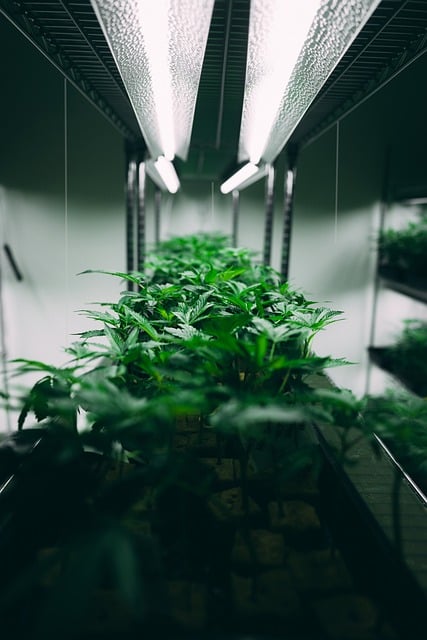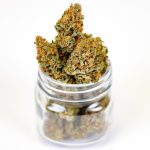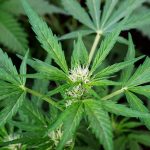Recent scientific studies have revealed that THCA (tetrahydrocannabinolic acid), a non-psychoactive cannabinoid found in the cannabis plant and a precursor to THC, holds significant therapeutic promise. THCA flower lab reports have provided detailed insights into its anti-inflammatory, neuroprotective, analgesic, and anti-emetic properties, highlighting its potential for pain relief, inflammation management, and treatment of conditions like neuropathic pain and multiple sclerosis. The research underscores the importance of THCA's interaction with the endocannabinoid system and the entourage effect when combined with other cannabis compounds. These findings support the use of THCA flower as a natural remedy or complementary therapy, offering healthcare professionals and patients valuable information for decision-making. Consumers are advised to consult precise THCA flower lab reports for accurate cannabinoid content, ensuring safe and effective use according to their health goals and personal body chemistry. These detailed analyses not only contribute to the scientific understanding of THCA's therapeutic potential but also emphasize the need for informed dosing to optimize wellness outcomes.
Explore the emerging landscape of wellness with the spotlight on THCA flower, a cannabinoid-rich botanical gaining attention for its potential health benefits. This article delves into the scientific findings supported by lab reports, shedding light on the therapeutic properties and health implications of THCA flower. From understanding its effects through rigorous analysis to navigating optimal consumption for wellness, this comprehensive exploration covers it all. Join us as we unravel the science behind THCA flower and its benefits, ensuring a data-driven approach to your health journey.
- Unveiling the Potential of THCA Flower Lab Reports: A Closer Look at Cannabinoid Benefits
- The Science Behind THCA Flower: Understanding its Therapeutic Properties Through Rigorous Analysis
- Analyzing the Health Implications of THCA Flower: A Review of Clinical Study Findings
- Optimal Consumption and Dosage: How Lab Reports Guide the Safe and Effective Use of THCA Flower
Unveiling the Potential of THCA Flower Lab Reports: A Closer Look at Cannabinoid Benefits

Laboratory analyses have shed light on the potential therapeutic properties of THCA (Tetrahydrocannabinolic Acid), the raw form of the well-known cannabinoid THC (Tetrahydrocannabinol). THCA flower lab reports have become a focus for researchers and consumers alike, as they provide concrete evidence of the benefits associated with this non-psychoactive cannabinoid. These studies reveal that THCA may offer analgesic, anti-inflammatory, and neuroprotective effects, which are of significant interest in various medical applications. The lab reports detail how THCA interacts with the body’s endocannabinoid system, suggesting a role in regulating pain, inflammation, and other critical bodily functions. Furthermore, these analyses have contributed to understanding the entourage effect, highlighting how THCA, when present alongside other cannabinoids, terpenes, and flavonoids found in the cannabis plant, may enhance its therapeutic potential. The consistency and reliability of data from these lab reports provide a solid foundation for professionals and patients to make informed decisions regarding the use of THCA flower as a natural remedy or complementary therapy.
The Science Behind THCA Flower: Understanding its Therapeutic Properties Through Rigorous Analysis

Laboratory analyses have elucidated the therapeutic potential of THCA, or tetrahydrocannabinolic acid, a non-psychoactive precursor to the well-known THC found in the cannabis plant. These lab reports on THCA flower reveal its rich cannabinoid profile and how it interacts with the human endocannabinoid system. THCA is recognized for its anti-inflammatory properties, which are of significant interest within therapeutic applications. Preclinical studies indicate that THCA may offer analgesic effects, making it a subject of research for conditions characterized by pain and inflammation. Furthermore, the anti-emetic qualities of THCA have been observed in clinical settings, providing hope for individuals seeking alternative treatments for nausea and vomiting associated with various ailments. The scientific community continues to investigate the myriad benefits of THCA flower through rigorous analysis, uncovering its potential as a beneficial therapeutic agent and contributing valuable data to the body of evidence supporting its use. The detailed lab reports, which delineate the precise cannabinoid and terpene content of THCA flower, are instrumental in advancing our understanding of its efficacy and providing insights into optimal dosing and administration for various therapeutic purposes.
Analyzing the Health Implications of THCA Flower: A Review of Clinical Study Findings

Laboratory reports on THCA (Tetrahydrocannabinolic Acid) flower have shed light on its potential health implications, which are drawing considerable attention in the clinical research community. These lab reports detail the presence and concentration of cannabinoids within the THCA flower, particularly emphasizing THCA itself, a non-psychoactive precursor to THC (Tetrahydrocannabinol). Clinical studies examining the effects of THCA have indicated its promising potential as an anti-inflammatory and neuroprotective agent. Preliminary findings suggest that THCA may offer therapeutic benefits for conditions such as neuropathic pain, multiple sclerosis, and other inflammatory disorders without the psychoactive effects commonly associated with its counterpart, THC. Additionally, research is ongoing to further explore its impact on various physiological functions, including its potential role in cancer cell growth inhibition and as an antiemetic agent. The comprehensive analysis of these lab reports underscores the importance of THCA flower’s cannabinoid profile and its implications for health and wellness, providing a foundation for future clinical trials to validate its therapeutic applications.
Optimal Consumption and Dosage: How Lab Reports Guide the Safe and Effective Use of THCA Flower

When incorporating THCA flower into one’s wellness routine, understanding optimal consumption and dosage is paramount for safe and effective use. THCA flower, which contains the non-psychoactive acid form of tetrahydrocannabinol (THC), offers a range of potential benefits, but its effects can vary significantly based on individual factors such as body chemistry and tolerance. To navigate this landscape, lab reports play an instrumental role in guiding consumers towards informed decisions. These detailed analyses provide precise concentrations of THCA, as well as other cannabinoids, terpenes, and potential contaminants present in the flower. By examining these lab reports, users can tailor their consumption to their specific needs and desired effects. For instance, a higher THCA concentration may be preferred for its potential anti-inflammatory properties, while a lower dosage might suffice for those seeking a more subtle impact. Additionally, lab reports help consumers avoid overconsumption, which could lead to unwanted side effects. It is advisable to start with a low dose and gradually increase it as needed, while always referring to the lab report’s guidance on safe consumption levels. This approach ensures that users can enjoy the potential wellness benefits of THCA flower while prioritizing their health and safety.
The exploration into the therapeutic and potential health benefits of THCA flower, as outlined in recent lab reports, reveals a promising landscape for its application. Rigorous scientific analysis underscores the significance of this cannabinoid-rich plant. Clinical study findings further substantiate these claims, suggesting that THCA flower may offer significant advantages when used responsibly and with proper dosage guidance. As we continue to delve into the effects and benefits of THCA flower through empirical evidence, it is clear that lab reports serve as a cornerstone for understanding its full potential. The collective findings from these studies provide valuable insights for individuals interested in exploring the wellness properties of THCA flower, highlighting the importance of such research in shaping informed decisions within the realm of alternative health options.


